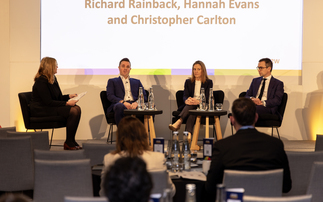Does the renewed focus on ‘active share' (AS) represent a step forward for fund disclosure or simply a PR victory? The jury is still out.
Several groups now publish the measurement – which calculates the extent to which a fund differs from its benchmark – but something of a backlash has already emerged. Majedie Asset Management, for example, has outlined a number of reasons why a focus solely on active share is misguided, while the managers of the Evenlode Income fund point out a truly active fund will inevitably go through periods of underperformance. A high AS score is no panacea. A recent study by Nomura went further, suggesting “closet tracker” US funds consistently outperformed those with a high active share betwee...
To continue reading this article...
Join Investment Week for free
- Unlimited access to real-time news, analysis and opinion from the investment industry, including the Sustainable Hub covering fund news from the ESG space
- Get ahead of regulatory and technological changes affecting fund management
- Important and breaking news stories selected by the editors delivered straight to your inbox each day
- Weekly members-only newsletter with exclusive opinion pieces from leading industry experts
- Be the first to hear about our extensive events schedule and awards programmes








